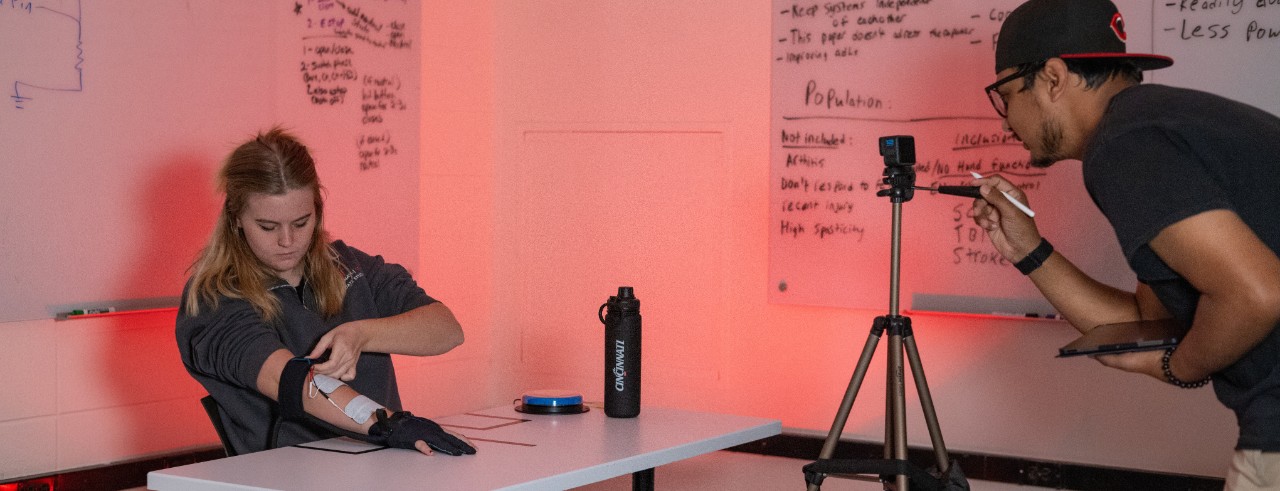
University of Cincinnati project aims to aid people with spinal cord injuries
Spectrum News, Fox 19 highlights study designing assistive devices to restore hand grasping
Spectrum News and Fox 19 highlighted University of Cincinnati research designing a user-centered, easy-to-use assistive device to help restore hand grasping motions for people with spinal cord injuries/diseases.
A $200,000 grant from Paralyzed Veterans of America (PVA) is funding the project led by Derek Wolf, PhD. The team is developing a user-friendly exoskeleton that combines robotics and functional electrical stimulation (FES).
“We’re creating a hybrid system where most of the motion is driven by electricity,” Wolf, assistant professor in the Department of Mechanical and Materials Engineering in UC’s College of Engineering and Applied Science, told Spectrum News. “That’s important because it uses the person's own muscles, which helps maintain strength and could support rehabilitation.”
Sarah Elam, who lives with multiple sclerosis, is a key voice in the project as one of two research advocates testing the devices and prototypes as the research progresses.
"I’m helping others and making sure the word gets out. People need to know about this," she said. “I’m just one little tiny person out of a great variety of disabilities that this could help,” she said.
Doctoral student Ryan Cuda told Fox 19 it is exciting to see his work have an immediate positive impact.
“I did a lot of work in research in mechanical engineering,” Cuda said. “So, it’s really cool to see firsthand that impact that you’re having. Kind of, as you’re putting the prototype on them and you could hear them say, ‘Oh, this is the first time I’ve ever held something like this in years,’ and it’s been very impactful.”
Watch the Spectrum News story.
Featured photo at top of students taking pictures of the prototype exoskeleton. Photo/Corrie Mayer/University of Cincinnati.
Related Stories
German TV highlights UC expert's ancient Maya discoveries
March 2, 2026
The German television show 'Unsolved Case' talks to a University of Cincinnati expert about ballcourts used by the ancient Maya for a program examining how people used spheres as both tools and toys.
UC studies supplement, therapy alternatives to treat depression
March 2, 2026
Media outlets including Cleveland.com and Cleveland's WKYC News highlighted a new University of Cincinnati clinical trial funded by an approximately $3.5 million grant from the National Institutes of Health’s National Center for Complementary and Integrative Health to test two new nonpharmacological treatments for teens and young adults with depression.
Did plants nearly wipe out all marine life on Earth — twice?
March 2, 2026
An expert on global mass extinctions at the University of Cincinnati provided context to a new study examining the spread of the first land plants on Earth between 360 million and 540 million years ago.
